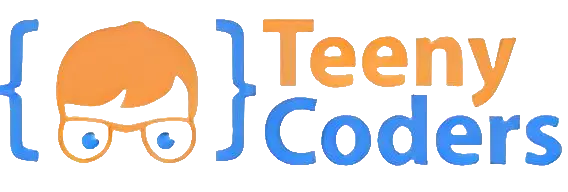Coding for kids is the process of teaching children computer programming skills in a fun and engaging way. It involves introducing children to the basics of programming through interactive activities, games, and exercises that encourage problem-solving and logical thinking.
Coding for kids typically involves teaching programming languages like Scratch, Python, or JavaScript, and providing resources and tools such as visual programming interfaces or coding games to help children understand the concepts.
The aim of coding for kids is to equip them with skills that will be useful for their future in a world where technology is increasingly becoming an integral part of everyday life. By learning to code, children can develop their creativity, critical thinking, and problem-solving skills while also gaining an understanding of how computers work and how they can be used to solve problems.
When can kids start coding?
Children can start learning programming as early as age 5 or 6, although the ideal age may vary depending on the child’s individual readiness and interests. Younger children can start with visual programming tools such as:
- Scratch (from Massachusetts Institute of Technology)
- Blockly (from google), which allow them to drag and drop code blocks to create simple programs.
As children get older and more comfortable with programming concepts, they can move on to text-based languages such as Python or JavaScript. It is important to keep in mind that young children may not have the same level of attention span or ability to sit still for extended periods of time, so it is important to keep lessons short and engaging.
It is also important to remember that programming is not just about writing code, but also about problem-solving and logic. Children can develop these skills through activities such as puzzles, games, and tinkering with technology. Ultimately, the best age to start learning programming will depend on the child’s interests and abilities, as well as the resources and support available to them.
10 Benefits of coding for kindergarten?
Teaching coding to kindergarten-aged children can provide many benefits that go beyond just learning to code. Here are 10 benefits of coding for kindergarten:
Develops problem-solving skills:
Coding requires children to break down complex problems into smaller, more manageable parts. This process helps them develop analytical skills and problem-solving abilities.
Encourages creativity:
Coding encourages children to think outside the box and come up with creative solutions to problems.
Boosts critical thinking skills:
Children must think critically when coding, as they need to identify errors and find ways to fix them.
Enhances math skills:
Coding involves math concepts such as patterns, sequencing, and logic. Through coding, children can develop and enhance their math skills.
Improves attention span:
Coding requires concentration and focus, which can help children develop longer attention spans.
Enhances language skills:
Coding involves learning a new language, which can help improve children’s language skills and vocabulary.
Develops teamwork skills:
Collaborating with others on coding projects can help children develop teamwork skills and learn to work together towards a common goal.
Builds resilience:
Learning to code requires persistence and patience. Children must keep trying even when they encounter challenges or setbacks, which can help them develop resilience.
Provides an early introduction to technology:
By learning to code, children gain an early introduction to technology and an understanding of how it works.
Prepares for the future:
In a world where technology is becoming increasingly important, learning to code at a young age can prepare children for future careers and give them an advantage in the job market.
Recommendations
Since technology is evolving daily. And AI robots are taking over the human place or reducing human labor force in big tech industries. So, unemployment is rising. And programming seems to be the only skill which has not been affected by AI so far. A survey conducted in US by “The World Economic Forum’s Future of Jobs Report” which is published on journal states, “97 million new digital jobs will be created by 2025. Also, key findings say that 58% of United States students see coding as vital skill as foreign language for future jobs prospects.”
10
Frequently Asked Questions about coding for kids?
Coding for beginners come up with a lot of confusions and questions in parents and kids mind as well. Here are the questions asked by many kids and parents:



